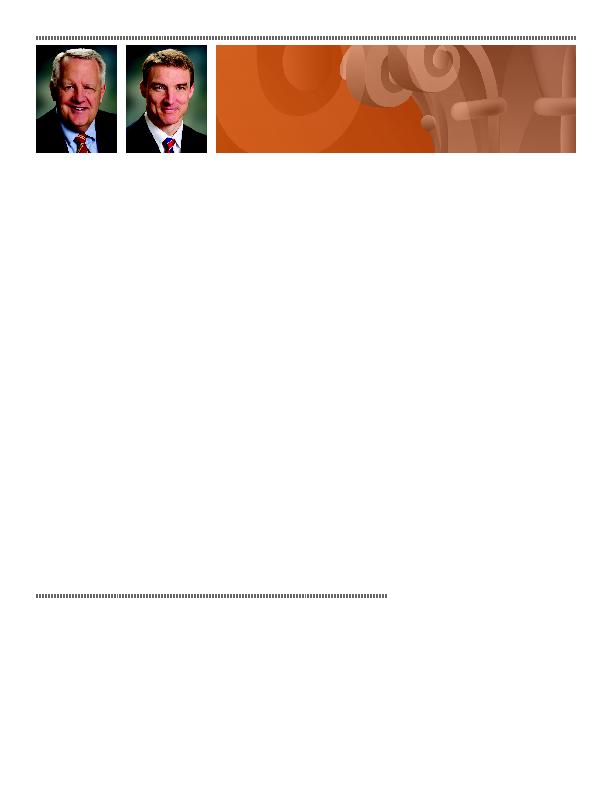
Sound Independent Judgment
the former Managing Partner of Beresford Booth PLLC. His practice
involves business, banking and real estate matters both in the
transactional and litigation areas.
PLLC and chairman of the firm's business group. For the last 18
years, David's practice has focused on business and real estate
issues with an emphasis on limited liability companies (LLCs).
He frequently represents businesses involved in all phases of
formation, operation, dispute, dissolution and winding up. He
has extensive experience conducting presentations regarding
complex legal issues involving LLCs.
145 Third Avenue South, Suite 200
Edmonds, Washington 98020
425.939.2838 Phone
425.776.1700 Fax
dick@beresfordlaw.com
davidt@beresfordlaw.com
www.beresfordlaw.com
poor decision made as a result of a lim-
ited perspective, lack of due diligence
and just plain insufficient effort. Good
lawyers bring their clients more than just
a different perspective; they bring them
the benefit of their detached analysis,
careful questioning and sound judgment.
In this article, we will discuss what sepa-
rates Primerus lawyers from others: the
Primerus lawyers' use of sound indepen-
dent judgment.
Most lawyers are able to inform a cli-
ent about the applicable law and leave it
to the client to make their own decision
as to how to apply the law. We believe
better lawyers add value to their clients
by the use of their sound independent
judgment rather than passively accepting
and acting upon their client's direction.
Clients expect their lawyers to provide
the benefit of their experience and judg-
alternatives, and, where at all appropri-
ate, recommend a preferred course of
action and strategy. This process involves
hard work and discipline.
judgment must be utilized with an analy-
sis detached from harmful emotions such
as a quest for vengeance, fear of the un-
known or greed. Our judgment must not
be contaminated by the clients' interpre-
tation of their current situation. Rather,
we must engage in careful questioning
and investigation into the facts. We have
learned that, unless we are careful, our
clients tell us the "good news," but we
hear the "bad news" from the other side.
Although we are advocates for our cli-
ents, we must counsel them independent
of our advocacy role.
does not mean arrogantly believing we
know better than our client, nor does
it mean that we pre-empt our clients'
decision making or bias the courses of
action we present to our client. It means
using our experience and common sense
to arrive at a sound decision. Too often,
the failure to make a decision results in
unfortunate consequences. Using our
judgment sometimes means collectively
"sticking our noses out" to get our clients
to make a decision rather than passively
waiting.
Finally, our independent judgment
must be sound. "Sound" means the
process of selecting the right course of
action. The right course of action must
be evaluated from a moral, as well as a
strictly legal perspective. We may not be
"right" every time, but we are sound in
our process of arriving at our judgment
for our clients. As lawyers, we should be
advocates of good to our clients, which
also serves a societal benefit. One of the
reasons we love what we do is that we do
our best every day to make our clients
and our society better.